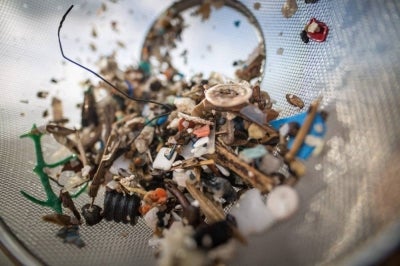#MeToo wave sweeps Taiwan in long-awaited reckoning

TAIPEI, Taiwan - Whistle-blower Chen Chien-jou has watched with mixed emotions as Taiwan's #MeToo movement swept from politics and academia to the entertainment world after her account of harassment and subsequent victim-blaming went viral.
The 22-year-old former campaign worker wrote in a Facebook post in late May about being groped during a car ride by a TV director hired by her then-employer, the ruling Democratic Progressive Party (DPP), for a project last year.
When she mustered the courage to tell the party's head of women affairs, Chen said she was treated in a "cold and humiliating" manner and stonewalled by her superior.
"I was hit with questions like 'Why didn't you jump out of the van' and 'why didn't you scream'," she told AFP.
"I felt I was denied and blamed, and it's a joke (to the superior) who showed no respect for what I felt." Her post instantly went viral, with fellow Taiwanese jumping with their own accounts of workplace harassment.
It also ignited a reckoning beyond politics.
A prominent activist is under investigation by his university employer, an influential author apologised publicly to a city councillor and celebrities have become embroiled in scandal.
Among the cases that came to light was a popular comedian accused of sexually assaulting about 20 women. Prosecutors have opened an investigation.
"It's good that the victims can speak out, which takes a lot of courage," Chen said.
"But it saddens me to hear these things that should not have happened."
Taiwan touts itself as one of the most progressive democracies in Asia, with the region's first same-sex marriage legislation and a high number of women participating in politics.
But activists say the crescendoing wave of #MeToo cases shows gender inequality remains a deep-seated problem, rooted in a culture prone to victim-blaming.
"Sexual violence -- from domestic violence to sexual harassment -- is more common than people think," said Liao Shu-wen, secretary-general of Taiwan Coalition Against Violence.
One of the island's first lightning-rod cases occurred in 2018, amid a broader, global rise of the #MeToo movement. A group of women sued their former gymnastics coach for sexual assault perpetrated when they were minors -- eventually leading to his conviction.
But Taiwan's movement did not gain much momentum at the time "because there were many (online trolls) who questioned and blamed the victims," said Wang Yue-hao, head of women rights group the Garden of Hope Foundation.
Previous surveys conducted by her foundation and the labour ministry also showed "around 70 to 80 percent of sexual harassment victims dare not" file workplace complaints.
"They are worried that they will be viewed as troublemakers." But times are changing.
"This time, there are more people voicing support than doubt... and some political leaders have made fast and positive responses," Wang said.
Chen's case -- as well as several other incidents that have emerged within the DPP since May -- have elicited apologies from President Tsai Ing-wen and Vice President William Lai, a candidate for next year's election.
"The DPP has to constantly reflect and improve so we are worthy of the voters' trust," Lai said on Facebook.
The opposition Kuomintang party has also vowed to investigate allegations popping up within its ranks.
Parliament is set to hold an extraordinary session later this month to revise three gender equality-related laws, including establishing a "reliable and direct reporting mechanism" for workplace sexual harassment.
"If the society can't deeply reflect and acknowledge gender equality as a basic human right, we would let down the people who spoke out during this wave," DPP lawmaker Fan Yun told AFP.
A rallying refrain heard as the movement gained momentum was "Let's not just let this go" -- dialogue from popular Taiwanese Netflix show "Wave Makers".
The TV series follows a group of campaign staffers for a political party -- not dissimilar to the DPP -- working in the run-up to a presidential election.
"We can't let things go this easily. Otherwise, we'll slowly wither away and die," said the main character, Weng Wen-fang, who vows to help her subordinate after she was groped by a colleague and pressured to stay silent.
After watching "Wave Makers", Chen decided to go public with her account.
She said she has found some solace in the public apologies from DPP leaders, and her ex-superior had stepped down, but the director who harassed her has yet to apologise.
"I hope that the people who are willing to stand up during this wave can get the justice they deserve," Chen said.
"And for those who can't talk about it right now, I hope they find the means to keep going." - AFP
Download Sinar Daily application.Click Here!














